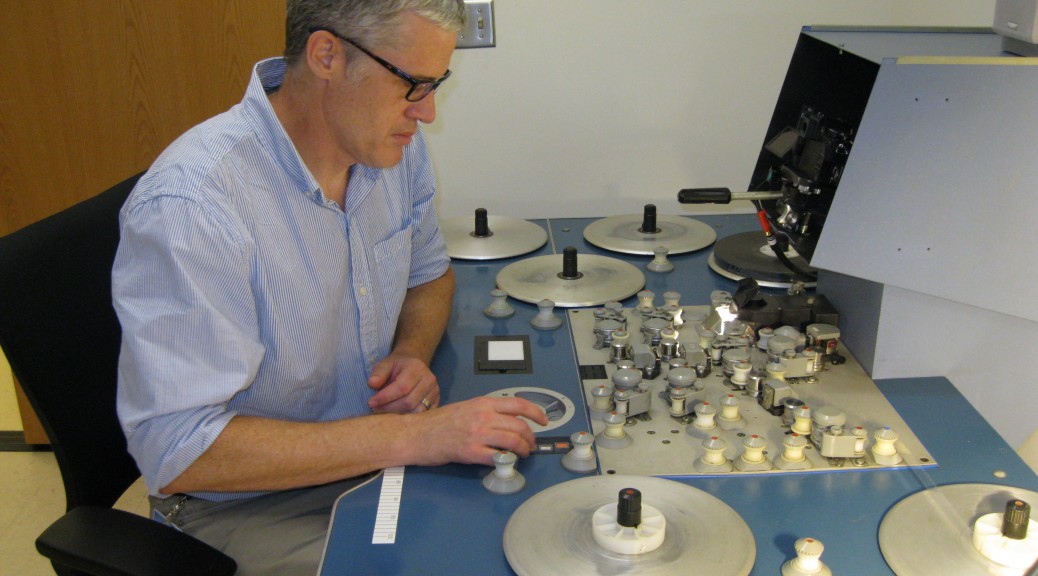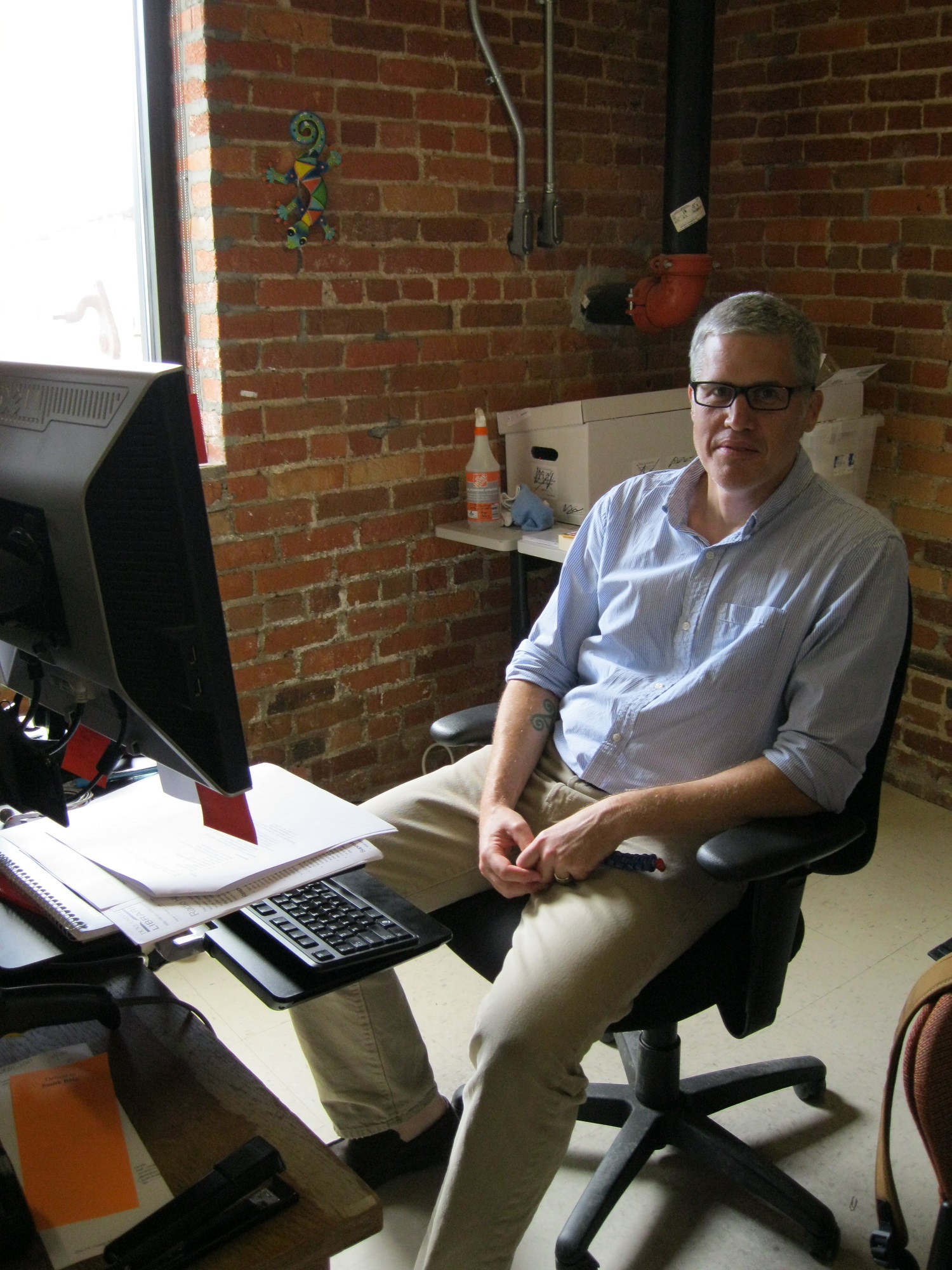The Meet Our Staff series features Q&A interviews with Rubenstein staff members about their work and lives.
Craig Breaden joined the Rubenstein as our Audiovisual Archivist three years ago. Prior to his time at Duke, he spent seven years at the Russell Library at the University of Georgia. He has a BA and MA in history from Texas Christian University and Utah State University, respectively, and an MLS from UNC . He works on everything from small single-film collections to grant-funded preservation projects involving thousands of audiovisual items. He facilitates preservation work, provides access to obsolete formats, processes (inventory and catalog) collections, and functions as the go-to oral history guy.
Tell us about your academic background and interests.
I started out interested in frontier history particularly, and how popular images of the American West inform the way Americans think about themselves, their creation myths, the rest of the world. I’ve also had a lifelong love of music and a fascination with recorded audio and video. Our audiovisual heritage provides a different, animated view of the past, and can carry a unique emotional weight.
What led you to working in libraries?
I’d had some experience working in a special collections library while in college, but it took a long while for me to come to the profession. Some folks are late bloomers, I guess. After years of working in corporate atmospheres unrelated to my academic background, I’d come to the point where I wanted to start making a difference and make a living. It was the idea that work should mean something, make some kind of contribution to the society as a whole. There are of course all kinds of ways to do this, but I thought I should play to my strengths. I had a challenging and satisfying year of teaching 8th grade social studies, but knew that I could give more outside the classroom by focusing on what we might consider the raw materials of educators, those cultural heritage resources that give voice to the past. It so happened that one of the best library schools in the country (UNC-Chapel Hill) was just down the road, and I applied and fortunately got in. I decided to focus on my background and my interest in A/V, and while in school pursued audiovisual archiving as an emphasis of my library education. I owe a big debt to the Southern Folklife Collection and its director, Steve Weiss, in helping me on my way, and to the great librarians at the University of Georgia for giving me a shot.
How do you describe what you do to people you meet at a party? To fellow librarians and library staff?
I usually tell people I’m an archivist in Duke Special Collections. Sometimes that leads to further conversation, other times not. I think in general there’s a real disconnect, a misunderstanding about what history really is. It’s hard to say to most people that what we think of as history is what it is because of what we do in libraries and archives like the one here at Duke. Colleagues get it, but I think usually the best introduction for them is when they get a CD or tape or film as part of a collection and wonder, at the very basic level, what to do with it.
What does an average day look like for you?
One of the great things about my job is that there aren’t many average days, but most days hold some combination of digital preservation, inventorying collections, answering reference questions via email, figuring out how to run a film or a video or audio tape so that we know what’s on it, and advising colleagues on portions of their collections that hold AV. Then there are often questions related to policy creation and the changing landscape of digital preservation. And let’s not forget the meetings….
What do you like best about your job?
I like figuring out problems that fall into my domain of expertise. I do a ton of troubleshooting and tinkering to get AV to simply play back in a way that it can be accessed, and these nuts-and-bolts successes are always satisfying and really essential to what I do. I also enjoy meeting donors and getting to know the personalities behind the stuff, just as it’s always great to help a researcher plug into something they might not have been aware of. And of course my colleagues – every one of them brilliant in completely different ways.

What might people find surprising about your job?
The amount of time spent with spreadsheets and on email. The first is part and parcel of what we do, that is, knowing what we have, the second is all about attempting to efficiently communicate (jury’s out on that, though). Pleasantly surprising is that amazingly smart colleagues have something interesting to show or talk about every day. Archives can be mind-blowing.
Do you have a favorite piece or collection at The Rubenstein? Why?
The H. Lee Waters Films for their big heart, the Frank Clyde Brown field recordings for all the secrets they hold in their wax cylinder and lacquer disc grooves (and that will soon be secret no longer), the home movie collections we have that tell a story beyond what’s happening onscreen, and all the fragile and forgotten bits of film and video that share our shelves equally and continue to have a voice.
Where can you be found when you’re not working?
With my kids, cooking, strumming a guitar (sometimes all three at once).
What book is on your nightstand/in your carryall right now?
The Buried Giant by Kazuo Ishiguro; The Innkeeper’s Song by Peter S. Beagle; Hold Tight, Don’t Let Go by Laura Wagner; and Haiti: The Aftershocks of History by Laurent Dubois.
Interview conducted and edited by Katrina Martin.



